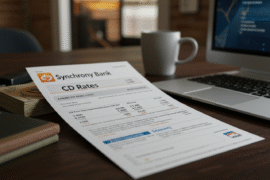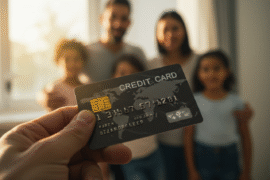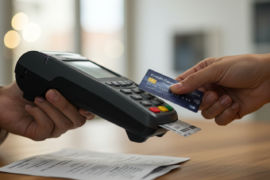This article may contain references to products or services from one or more of our advertisers or partners. We may receive compensation when you click on links to those products or services. Nonetheless, our opinions are our own.
The information presented in this article is accurate to the best of our knowledge at the time of publication. However, information is subject to change, and no guarantees are made about the continued accuracy or completeness of this content after its publication date.
Finding the right bank is a big deal—it’s one of those decisions that can really shape how you handle your money day-to-day and plan for what’s ahead. With so many choices out there, it’s worth taking a moment to figure out what works best for you. The bank you go with can make a real difference in keeping your finances on track and helping them grow.
A good bank is all about finding the right mix of services, fees, and support that fits your life—whether it’s for personal stuff or your business. In this article, we’ll walk you through the main things to think about so you can land on a choice that lines up with your goals.
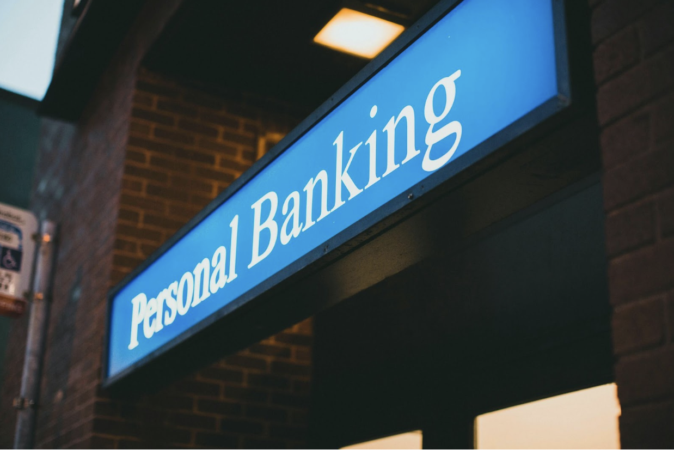
Understand Your Banking Needs
First things first: what do you actually need from a bank? Are you just looking for a simple checking account to cover daily expenses? Or maybe you’re after something more—like loans, a credit card, or even mortgage options? Getting clear on this helps you cut through the noise and focus on what matters.
If it’s personal banking you’re thinking about, ask yourself if you want a savings account, some investment options, or easy access to credit. For business owners, you’ll want a bank that gets your industry and offers the right tools. Knowing what you’re after is the key to finding a bank that’s got you covered.
Research Bank Types
Not all banks are the same—they come in a few different flavors. Traditional banks are the ones with physical branches you can walk into. If you like talking to someone face-to-face or need help with trickier financial stuff, these might be your speed. They’ve usually got more resources, but that can come with higher fees and lower interest rates.
Then there are online banks—no branches, just a digital setup. They tend to offer better rates on savings and lower fees, which is great if you’re comfortable managing everything from your phone or computer. Credit unions are another option—they’re more personal, often cheaper, and can have solid rates, but you’ll need to qualify to join.
Customer Experience and User Interface
Let’s talk about what it’s like to actually use the bank. A clean, easy app or website can make a huge difference—nobody wants to wrestle with a clunky interface just to check their balance or move money around. Look for something simple and smooth that makes banking feel less like a chore.
Customer support matters too. Can you get help when you need it? Are the people on the other end friendly and useful? These days, a lot of banks are adding AI chatbots to the mix—think of them as 24/7 helpers. A generative AI agent can answer questions, fix problems, and give you advice anytime, no waiting for a human required. The cool part? These AI tools get smarter over time, tailoring their responses to you. It’s a nice perk that can save you time and hassle.
Assess Fees and Charges
Fees can sneak up on you if you’re not careful. Every bank does things a bit differently, so check out the fine print. Monthly fees for checking accounts are a big one—some banks charge nothing, others hit you unless you keep a certain balance. Figure out what it takes to dodge those costs.
Don’t forget about ATM fees or overdraft charges either. Using an out-of-network ATM can cost you, and overdraft fees can pile up fast if your account dips too low. Compare these across a few banks to see which one’s easiest on your wallet.
Voted "Best Overall Budgeting App" by Forbes and WSJ
Monarch Money helps you budget, track spending, set goals, and plan your financial future—all in one app.
Get 50% OFF your first year with code MONARCHVIP
Look for Convenience and Accessibility
Convenience is huge. If you’re someone who needs cash a lot, make sure the bank’s got plenty of ATMs nearby—or at least partners with a network that won’t charge you extra. Branch locations might matter too, depending on how often you’d rather pop in person.
On the flip side, check out their online and mobile banking. Most of us do stuff like pay bills or peek at our balance from our phones these days. Download their app if you can and see if it feels intuitive—good digital tools can make life a lot simpler.
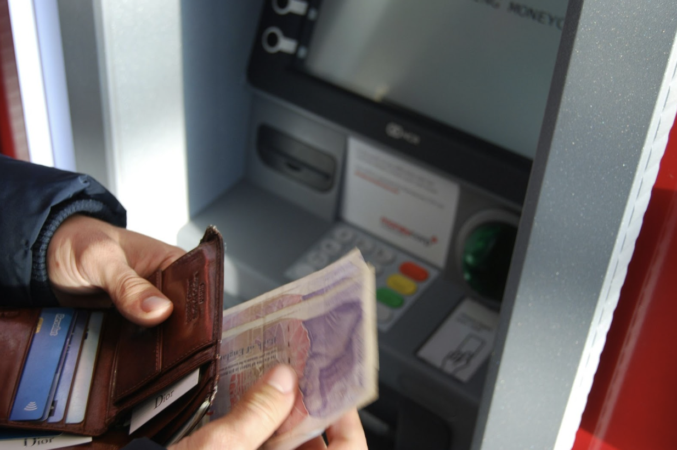
Evaluate the Bank’s Reputation
A bank’s track record tells you a lot. Start with customer reviews—see what people are saying about the service, how easy it is to use, and if there’s anything they keep complaining about. A bank that gets consistent thumbs-ups is probably a safer bet.
You’ll also want to know they’re financially solid. Make sure they’re backed by the FDIC (or something similar if you’re outside the U.S.)—that way, your money’s safe even if things go south. A quick peek at their credit rating can clue you in on how stable they are.
Compare Interest Rates
Interest rates can make or break your choice, especially for savings accounts, CDs, or loans. A higher rate on savings means your money grows faster—look for banks that aren’t stingy here. For loans or credit cards, it’s the opposite: lower APRs save you cash in the long run. This is extra important if you’re eyeing something big like a mortgage. Shop around a bit to snag the best deal.
Additional Features and Perks
Some banks throw in perks that sweeten the pot. Think rewards programs—cashback, points, or discounts when you use their cards. It’s a nice little bonus if you’re into that. Others offer tools like budgeting apps, investment tips, or even financial planning help. Those can be a game-changer for keeping your money on track.
Wrapping It Up
Picking the right bank isn’t something to rush. Start by knowing what you need, then weigh your options. Dig into fees, rates, and what people say about them. With a little homework, you’ll land on a bank that fits your life and sets you up for the long haul.
Take your time, compare a few, and choose smart. The right bank can make managing your money a breeze and help you build a solid financial future.

Reviewed and edited by Albert Fang.
See a typo or want to suggest an edit/revision to the content? Use the contact us form to provide feedback.
At FangWallet, we value editorial integrity and open collaboration in curating quality content for readers to enjoy. Much appreciated for the assist.
Did you like our article and find it insightful? We encourage sharing the article link with family and friends to benefit as well - better yet, sharing on social media. Thank you for the support! 🍉
Article Title: How to Choose the Right Bank for Your Needs
https://fangwallet.com/2025/04/25/how-to-choose-the-right-bank-for-your-needs/The FangWallet Promise
FangWallet is an editorially independent resource - founded on breaking down challenging financial concepts for anyone to understand since 2014. While we adhere to editorial integrity, note that this post may contain references to products from our partners.
The FangWallet promise is always to have your best interest in mind and be transparent and honest about the financial picture.
Become an Insider

Subscribe to get a free daily budget planner printable to help get your money on track!
Make passive money the right way. No spam.
Editorial Disclaimer: The editorial content on this page is not provided by any of the companies mentioned. The opinions expressed here are the author's alone.
The content of this website is for informational purposes only and does not represent investment advice, or an offer or solicitation to buy or sell any security, investment, or product. Investors are encouraged to do their own due diligence, and, if necessary, consult professional advising before making any investment decisions. Investing involves a high degree of risk, and financial losses may occur including the potential loss of principal.
Source Citation References:
+ Inspo
There are no additional citations or references to note for this article at this time.




























